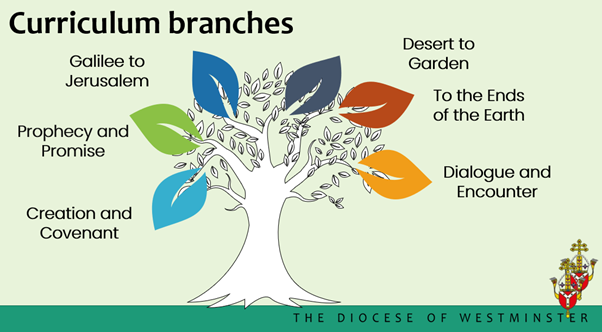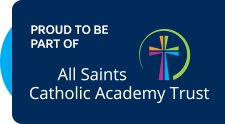Religious Education
St Rose’s is a Dominican school and has a strong Dominican charism that permeates throughout. Pupils learn about St Dominic and his four pillars, which we use in our weekly Gospel assembly. Our pupils know that our school badge ‘Veritas’ means truth and that we are part of the wider Dominican association.
Our aim at St Rose's is to develop the children's understanding of the messages that they have learned within a Bible story and help them to apply this knowledge to their own lives. In our lessons, teachers plan exciting hooks that both inspire and captivate the children.
To Know You More Clearly
In Spring 2025, we started teaching following from the new Religious Education Directory and its program ‘To Know You More Clearly.’
This program goes beyond the traditional curriculum, encouraging students to explore their faith through a lens of curiosity and introspection. Through engaging lessons, thoughtful reflections, and interactive activities, "To Know You More Clearly" creates a dynamic learning environment that encourages students to connect with their spirituality on a personal level.
This program not only imparts knowledge but also cultivates a genuine and enduring relationship with God, contributing to the overall spiritual development of the students.
Scripture is the foundation of each Branch and will develop knowledge, understanding, skills, compassion and awe and wonder across the curriculum.

The Ways of Knowing
The ways of knowing describe the skills that pupils develop as they progress though the religious education curriculum. These are:
Understand
In this way of knowing the aim is to help pupils understand deeply the meaning of sacred texts, religious beliefs, sacred rites, and the lives of individuals and communities who are shaped by these texts, beliefs and rites.
Discern
In this way of knowing the aim is to help pupils ne able to judge wisely in response to different interpretations of the meaning, significance and implications of texts, beliefs, rites, and ways of life so that they can arrive at justified conclusions about what is true, what is good and what is beautiful.
Respond
In this way of knowing the aim is to help pupils reflect personally and with integrity on what they have learnt and consider the implications for action these may have their own lives and the world in which they live.
Knowledge Lenses
The knowledge lenses indicate what should be known by the end if each age phase. They are referred to as lenses since they are what we are looking at.
HearThe first knowledge lens is called ‘Hear’ and discusses the human capacity for God, Divine Revelation, and its transmission, Sacred Scripture, and the human response to God’s invitation. It is called ‘hear’ because it focuses on the Word of God which we hear.
Believe
The second knowledge lens is called ‘Believe’ and deals with the contents of the Creed. It is called ‘believe’ because it focuses on the content of the Church’s own profession of faith. In this lens we look at those doctrines that constitute our faith: trinity, incarnation, the Holy Spirit, the communion of saints, the role of the Blessed Virgin Mary.
Celebrate
The third knowledge lens is called ‘Celebrate’ and is an exemplification of the Catechism that deals with liturgy and prayer. It is called ‘celebrate’ because it deals with the liturgy in which the Church celebrates the Paschal mystery of Christ. In this lens we look at prayer, liturgy, and sacrament, sacraments of initiation, the Eucharist, sacraments of healing, sacraments at the service of communion, and other liturgies and sacramentals.
Live
The fourth knowledge lens is called ‘Live’ and is an exemplification of Catholic social teaching and deals with the ways in which the disciples of Christ are called to be in the world. It is called ‘live’ because it focuses on the impact of faith on how Christians live. In this lens we look at the dignity of the human person; freedom, conscience, and virtue; law, grace, and sin.
Other Religions
Dialogue
The fifth knowledge lens is called ‘Dialogue’ and is an exemplification of the Church’s teaching on the relationship between Catholicism and other Christian traditions along with Catholicism and other religions and worldviews. It is called ‘Dialogue’ as this is the only authentic way of living faithfully in a world that accepts difference.
Encounter
The sixth knowledge lens is called ‘Encounter’ and is when children engage in a discrete study of other faiths, religions and worldviews. It focusses is on the importance of loving out neighbours and respecting other cultures and learning how to live peacefully with difference.

